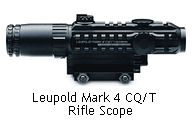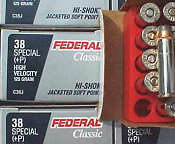 A magistrate hearing pretrial motions in the criminal export case against Doli Syarief Pulungan wondered in a recently issued Report and Recommendation1 whether there might be a secret version of the USML which lists actual items rather than categories of items. Of course it’s impossible for me to say whether or not there is a “secret” list of that sort with any certainty, since if I knew about it, it wouldn’t be so secret. I don’t think such a list exists, however, but I do think its useful to see what caused the magistrate to wonder about such a list.
A magistrate hearing pretrial motions in the criminal export case against Doli Syarief Pulungan wondered in a recently issued Report and Recommendation1 whether there might be a secret version of the USML which lists actual items rather than categories of items. Of course it’s impossible for me to say whether or not there is a “secret” list of that sort with any certainty, since if I knew about it, it wouldn’t be so secret. I don’t think such a list exists, however, but I do think its useful to see what caused the magistrate to wonder about such a list.
As we reported in an earlier post, Pulungan is charged with conspiring to export 100 Leupold Mark 4 CQ/T Rifle Scopes to Indonesia without a license. One of Pulungan’s pretrial motions was for a bill of particulars describing “the specifications to which the subject riflescopes were manufactured that make them defense articles on the Munitions List.” According to the magistrate’s report:
The government’s initial response is that its expert will testify at trial that Leupold Mark 4 CQ/T Riflescopes are on the Munitions List. Pulungan rejoins with an obvious observation: the list itself does not specify any brand or model of riflescope, nor does it list the specifications that would make the scopes defense articles; so what relevant testimony could this ostensible expert possibly provide? Pulungan wants a breakout of the implied syllogism: a riflescope that possesses characteristics x, y and z is deemed to be manufactured to military specifications; a Leupold Mark 4 CQ/T Riflescope possesses characteristics x, y and z; therefore, a Leupold Mark 4 CQ/T Riflescope is manufactured to military specifications. What, asks Pulungan, are x, y and z?
Of course the answer to that question is hardly a deep, dark secret. Leupold’s web site reveals that the scope was designed for the M16. Rather than saying this, however, the prosecution tried to be cute, and that’s where the trouble begins. The magistrate continues:
The government responds that it doesn’t work this way. There is no x, y or z factor that lands a riflescope on the Munitions List in Category I(f). The only logical way to interpret the government’s response is that there is another list, prepared by the DDTC, which determines whether any particular item is a defense article included on the Munitions List as part of ITAR.
The magistrate goes on to note that the government in its pleading says that an item “is designated as a ‘defense article’ on the United States Munitions List” or “defined by the ITAR as a ‘defense article’ covered by Category I(f)”:
If I am interpreting Count 1’s passive-voice declaration and the government’s explanation correctly, then some person or committee within the DDTC has declared that the Leupold Mark 4 CQ/T Riflescope is a “defense article” because it fits within Category I(f) of the Munitions list. But this doesn’t answer Pulungan’s actual complaint: how did it get there? Where, precisely, might a potential exporter actually find this ITAR designation of the Leupold Mark 4 CQ/T Riflescope? What is the foundational basis for the testimony of the government’s trial witness from the DDTC? Does the DDTC have some other real list by make and model? Is there a memo specific to the Leupold scope’s I(f) designation? If so, where is it and why hasn’t it been provided to Pulungan as pretrial discovery?
Following this logic to its end, the Magistrate ordered the prosecution to provide the who, how and why of the designation:
[T]he government promptly must explain in detail who designated the Leupold Mark 4 CQ/T Riflescope a “defense article,” how they did it (the procedural mechanisms) and why they did it (the actual and specific reasons for the designation).
To which we can anticipate the government will respond: nobody designated the Mark 4, there was no procedure that designated it, and no specific reasons were given. The scope is a USML item because it was manufactured to be used on the M16.
You can easily see how the government’s loose language got it into this silly predicament. Items aren’t on the USML; just categories are on the USML and items are either in a USML category or not. The Mark 4 scope isn’t designated on the USML. “Riflescopes manufactured to military specifications” are designated category I(f) on the USML and the Mark 4 either is or isn’t a “riflescope manufactured to military specifications.”
And the issue before the court is not the designation of milspec rifle scopes as category I(f), a designation which is not reviewable under section 38(h) of the Arms Export Control Act, 22 U.S.C. § 2778(h), but simply whether the Mark 4 is or is not a “riflescope manufactured to military specifications.”
It is only a semantic distinction to note that the category not the scope itself is on the USML, but failing to observe that distinction clearly resulted in the magistrate issuing an order that he might not have otherwise issued.
1 Westlaw subscription required.
 Some enterprising pornographer — from Sweden judging by my server logs — hacked the site sometime yesterday in an unsuccessful attempt to strew porno links everywhere. As a result the site was down last night and this morning.
Some enterprising pornographer — from Sweden judging by my server logs — hacked the site sometime yesterday in an unsuccessful attempt to strew porno links everywhere. As a result the site was down last night and this morning.
 Posted by
Posted by  Category:
Category: 

 This recently unsealed
This recently unsealed  An
An  A magistrate hearing pretrial motions in the criminal export case against Doli Syarief Pulungan wondered in a recently issued
A magistrate hearing pretrial motions in the criminal export case against Doli Syarief Pulungan wondered in a recently issued  Mr. Sasan Azodi, mentioned in
Mr. Sasan Azodi, mentioned in 

